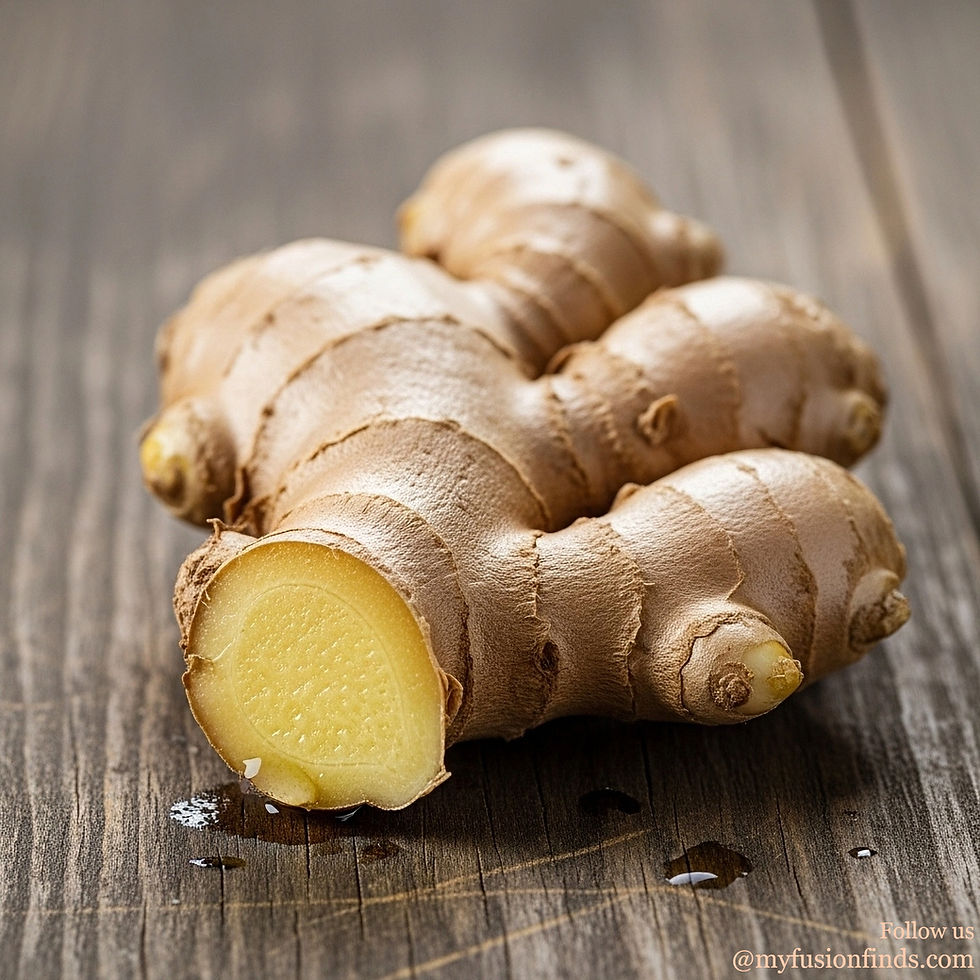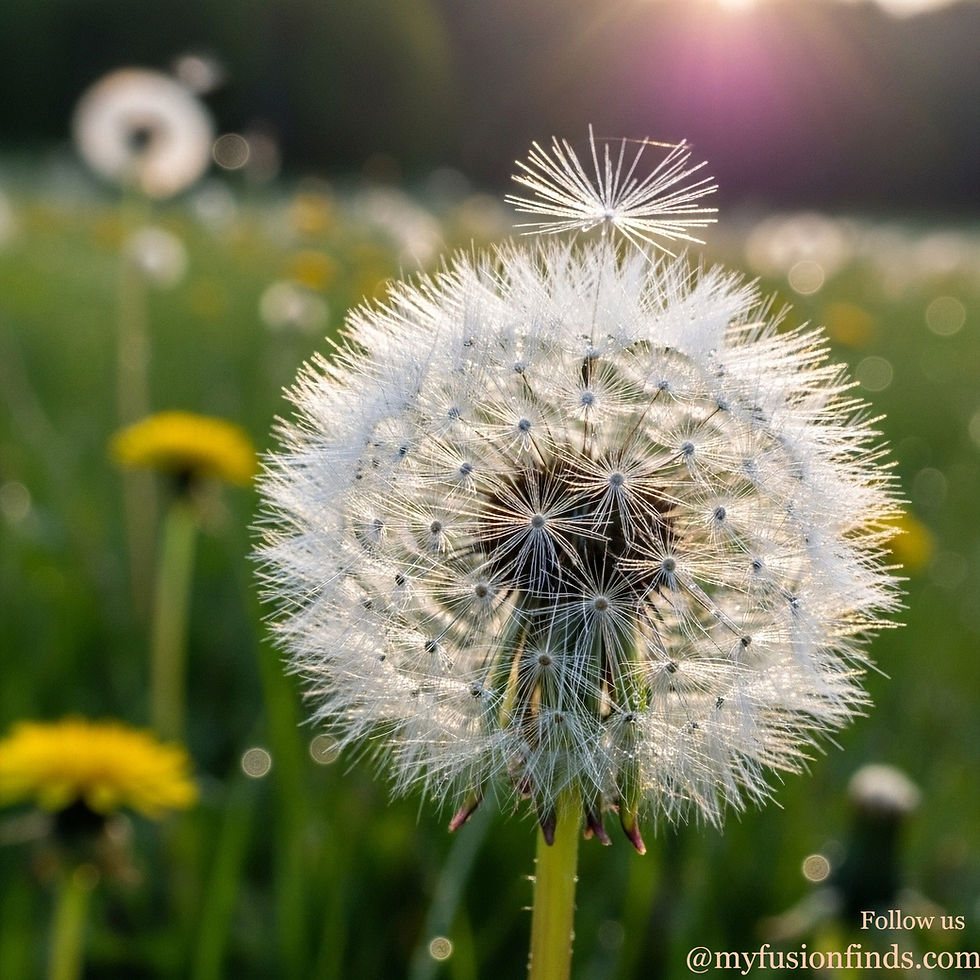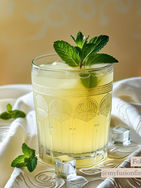🌿"Top 10 Healing Herbs and Their Benefits: What to Use and What to Avoid"
- SABA

- Sep 5
- 4 min read
Herbs That Heal: Nature's Medicine
For centuries, herbs have been at the center of healing systems like Ayurveda, Traditional Chinese Medicine (TCM), and Western herbalism. These natural remedies support the body's healing mechanisms, de-stress, improve immunity, and promote overall wellbeing.
Here is an extensive and updated guide to 10 effective herbs, their benefits, ideal users, precautions, and daily uses.
1. Turmeric (Curcuma longa)

Healing Power: Anti-inflammatory, antioxidant, pain reliever, liver detox support.
Benefits:
Reduces arthritis and joint pain
Enhances liver function and digestion
May help regulate blood sugar
Supports skin health and reduces acne
Who Should Have It:
Persons with arthritis, diabetes, skin conditions, or digestive issues
Who Should Avoid:
Pregnant women in large quantities
Persons taking blood thinners (e.g. warfarin)
Persons with gallstones or gallbladder disease
How to Use:
Combine with warm milk ("golden milk") or smoothies
Mix with black pepper for better absorption
2. Ginger (Zingiber officinale)
Healing Power: Anti-nausea, anti-inflammatory, warming digestive aid

Benefits:
Relieves nausea (morning sickness, motion sickness)
Reduces muscle soreness and menstrual cramps
Aids digestion and fights cold symptoms
Who Should Have It:
Pregnant women (small amounts)
Travelers, people with bloating or digestive discomfort
Who Should Avoid:
People with gallstones
Those taking blood-thinners or with bleeding disorders
How to Use:
Make fresh ginger tea
Add to food or chew small bits raw
3. Ashwagandha (Withania somnifera)
Healing Power: Stress-fighting adaptogen that boosts stamina

Benefits:
Lowers cortisol and anxiety
Improves memory and concentration
Boosts energy, muscle strength, and endurance
Who Should Take It:
Stressed, anxious, low-energy, or insomniatic individuals
Who Should Avoid:
Pregnant women
Those with hyperthyroidism or autoimmune diseases (unless supervised)
How to Take:
In capsule or powdered root form in warm milk or smoothies
4. Peppermint (Mentha piperita)
Healing Power: Decongestant, headache reliever, digestive soother

Benefits:
Relieves IBS, bloating, and indigestion
Eases tension headaches
Decongests nasal passages
Who Should Take It:
Individuals suffering from digestive discomfort, headaches, or sinus congestion
Who Should Not Take:
People with acid reflux (GERD) or hiatal hernia
Children under 5 (especially peppermint oil)
How to Take:
In tea, essential oil (diffused), or capsules for IBS
5. Chamomile (Matricaria chamomilla)
Healing Power: Natural relaxant, anti-inflammatory, menstrual soother

Benefits:
Improves sleep and reduces anxiety
Relieves menstrual cramps and spasms
Calms upset stomach and skin irritations
Who Should Have It:
People with insomnia, mild anxiety, or PMS
Who Should Avoid:
People allergic to ragweed, daisies, marigolds, chrysanthemums
Pregnant women (in large quantities)
How to Use:
Tea, compress for skin, or essential oil in bath
6. Holy Basil / Tulsi (Ocimum sanctum)
Healing Power: Adaptogen, immune protector, blood sugar balancer

Benefits:
Reduces physical and emotional stress
Balances blood sugar and cortisol levels
Offers respiratory support
Who Should Have It:
Diabetics, individuals under stress, persons prone to colds or flu
Who Should Avoid:
Pregnant or lactating women
Individuals taking blood sugar-lowering medication (monitor closely)
How to Use:
Tulsi tea, tincture, or fresh leaves in warm water
7. Echinacea (Echinacea purpurea)
Healing Power: Immune system booster, infection fighter

Benefits:
Shortens frequency and duration of colds
Possibly effective for treating upper respiratory infections
Antibacterial and antiviral effects
Who Should Have It:
Individuals with weak immune systems or recurrent colds
Who Should Avoid:
Those with autoimmune diseases or ragweed/daisy allergies
How to Use:
As tincture, capsule, or tea at onset of illness
8. Lavender (Lavandula angustifolia)
Healing Power: Calms the nervous system, heals skin, promotes rest

Benefits:
Reduces anxiety and stress
Promotes sleep and combats insomnia
Soothes skin irritations, minor burns
Who Should Have It:
Individuals with anxiety, insomnia, or mild skin issues
Who Should Avoid:
Individuals with lavender allergies
Young boys (topical lavender can disrupt hormones)
How to Use:
Essential oil for aromatherapy or skin
Dried lavender tea or sachets for calming sleep
9. Dandelion (Taraxacum officinale)
Healing Power: Liver tonic, mild diuretic, vitamin-rich cleanser

Benefits:
Encourages liver detoxification
Eases water retention
Rich in vitamins A, C, K, and minerals
Who Should Have It:
People with sluggish liver, skin issues, or water retention
Who Should Avoid:
People allergic to ragweed family
People on diuretics or blood thinners
How to Use:
Fresh leaves in salads, dandelion tea, or tinctures
10. Licorice Root (Glycyrrhiza glabra)
Healing Power: Soothes digestive system, promotes adrenal health, anti-inflammatory

Benefits:
Soothes sore throat and cough
Helps with ulcers and acid reflux
Can help adrenal function in case of exhaustion
Who Should Have It:
People with ulcers, bronchitis, or adrenal exhaustion
Who Should Avoid:
Pregnant women
People with high blood pressure, heart, or kidney issues
How to Use:
As a tea or extract—but not for long-term use unless it's deglycyrrhizinated (DGL)
Key Tips for Using Healing Herbs
Start small: Always test new herbs for tolerance or allergic reactions.
Go organic: Use high-quality, pesticide-free herbs.
Consult your doctor: Especially if pregnant, breastfeeding, or on medication.
Use as support, not substitutes for essential medical treatment.
Conclusion
Herbs are nature's medicine cabinet, offering support for everything from stress and sleep to immunity and digestion. When used wisely and respectfully, these plants can augment your wellness practice with the ancient wisdom of natural remedies.




















































































Comments